TQS Speaker Bios
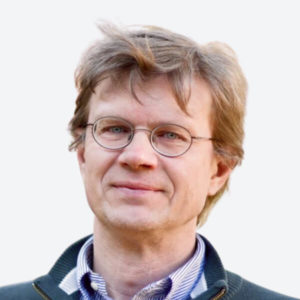
Dr. Mikhail Lukin
Joshua and Beth Friedman University Professor of Physics, Harvard University
Dr. Mikhail Lukin is the Joshua and Beth Friedman University Professor of Physics at Harvard University, where he also serves as Co-Director of the Harvard Quantum Initiative. Dr. Lukin received his Ph.D. in physics from Texas A&M University.
Dr. Lukin’s research focuses on quantum optics and quantum information science, with an emphasis on controlling strongly interacting atomic, optical, and solid-state systems. His work explores the quantum dynamics of many-body systems and develops novel applications in quantum computing, quantum simulation, quantum communication, and metrology. Dr. Lukin has pioneered advances in neutral atom quantum computing, quantum networking, and quantum sensing with both atomic and atom-like solid-state systems.
Dr. Lukin has authored more than 540 scientific publications and is a member or fellow of the National Academy of Sciences, the American Association for the Advancement of Science, the American Physical Society, and Optica. His honors include the Physics World Breakthrough of the Year (2024), Falling Walls Breakthrough of the Year in Physical Sciences (2023), the International Quantum Award (2022), the Norman F. Ramsey Prize of the American Physical Society (2022), the Charles Hard Townes Award of Optica (2021), the George Gamow Award (2020), and the Vannevar Bush Faculty Fellowship (2015). Earlier in his career, Dr. Lukin was recognized with the Alfred P. Sloan Fellowship, the Packard Fellowship for Science and Engineering, and the NSF CAREER Award.
Today, Dr. Lukin continues to advance quantum information science through both research and leadership, helping shape the future of computing, communication, and measurement at the frontiers of physics.
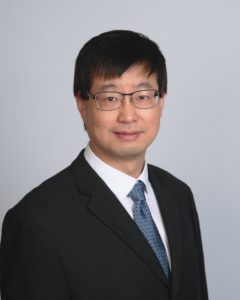
Dr. Jun Ye
JILA Fellow and Monroe Chair of Physics, University of Colorado and NIS
Dr. Jun Ye is a JILA Fellow and holds the Monroe Chair of Physics at the University of Colorado and the National Institute of Standards and Technology (NIST). He also serves as Director of Q-SEnSE, a National Science Foundation Quantum Leap Challenge Institute. Dr. Ye received his Ph.D. in physics from the University of Colorado, Boulder.
Dr. Ye’s research explores the frontiers of light–matter interactions, including precision measurement, quantum science, ultracold matter, and frequency metrology. He is internationally recognized for building the most precise atomic clock to date, advancing the fundamental limits of timekeeping and enabling new applications in science and technology.
Dr. Ye has authored more than 430 publications and is a member or fellow of the National Academy of Sciences, the American Physical Society, and Optica. His awards include the Berthold Leibinger Zukunftspreis (2025), the Lise Meitner Distinguished Lecture and Medal (2024), the Breakthrough Prize in Fundamental Physics (2022), the Vannevar Bush Fellowship (2022), and five Gold Medals from the U.S. Department of Commerce for achievements in optical atomic clocks, cold molecules, and frequency comb technology.
He has also been recognized with the Micius Quantum Prize, the APS Norman F. Ramsey Prize, the I.I. Rabi Award, the U.S. Presidential Rank Award (Distinguished), election as a Foreign Member of the Chinese Academy of Sciences, and a Frew Fellowship from the Australian Academy of Science. Additional honors include the European Frequency and Time Forum Award, the Carl Zeiss Award, the William F. Meggers Award, the Adolph Lomb Medal, the Arthur S. Flemming Award, the Presidential Early Career Award, the Friedrich Wilhelm Bessel Award, the Samuel Wesley Stratton Award, and the Jacob Rabinow Award.
Today, Dr. Ye continues to advance quantum science and precision measurement, shaping the future of fundamental physics and its applications worldwide.
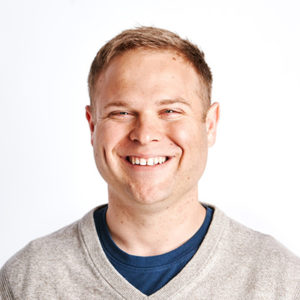
Dr. Matt Reagor
Senior Product Manager, Google Quantum AI
Dr. Matt Reagor is a Senior Product Manager at Google Quantum AI. He received his Ph.D. in physics from Yale University.
Dr. Reagor’s research focuses on quantum computing with superconducting qubits. He is best known for introducing the first millisecond quantum memory for superconducting qubits. Over the past decade, Dr. Reagor has led teams in the quantum computing industry, advancing both scientific discovery and technology development.
Previously, Dr. Reagor served as a Principal Investigator for quantum science programs supported by DARPA, the U.S. Department of Energy, and the U.S. Air Force. He was also a co-founding Principal Investigator and Chief Technology Officer of the Superconducting Quantum Materials and Systems (SQMS) Center, the U.S. DOE Office of Science National Quantum Information Science Research Center.
Dr. Reagor has authored 153 scientific publications and has been recognized as an IEEE Graduate Fellow. His career reflects a strong record of leadership in superconducting quantum systems and contributions that continue to shape the trajectory of quantum computing.
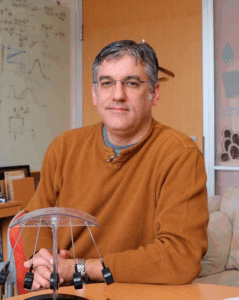
Dr. Christopher Monroe
Gilhuly Family Presidential Distinguished Professor of Electrical and Computer Engineering and Physics, Duke University
Dr. Christopher Monroe is the Gilhuly Family Presidential Distinguished Professor of Electrical and Computer Engineering and Physics at Duke University, where he also serves as Director of the Duke Quantum Center. He previously held appointments as a Distinguished Professor and Bice Zorn Chair at the University of Maryland.
Dr. Monroe received his Ph.D. in physics from the University of Colorado, Boulder. His research focuses on quantum computing, quantum simulation, and atomic, molecular, and optical physics. He is recognized for inventing and developing most of the foundational components for ion trap quantum computers. Dr. Monroe co-founded IonQ, Inc., the first publicly traded quantum computing company, with over 700 employees and a market capitalization of $8 billion.
Dr. Monroe has authored more than 250 publications (h-index 112) and holds over 30 patents. He has pioneered nearly all aspects of atom-based quantum computers and simulators, from demonstrations of the first quantum gate, to monolithic semiconductor-chip ion traps, to photonic interconnects between physically separated qubits, to the design, fabrication, and use of full-stack ion trap quantum computer systems in both university and industrial settings.
He is an elected member or fellow of the American Physical Society, the American Association for the Advancement of Science, Optica, the UK Institute of Physics, the U.S. National Academy of Sciences, and the National Academy of Inventors. His honors include the Presidential Early Career Award for Scientists and Engineers, the International Quantum Communication Award, the I.I. Rabi Prize, the Arthur Schawlow Prize, and the Willis Lamb Prize.
Dr. Monroe has also worked with and testified before the U.S. Congress as a key architect of the U.S. National Quantum Initiative.
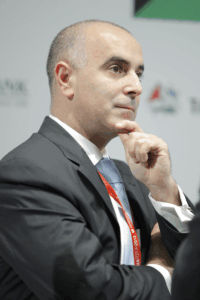
Mr. Philip Farah
Vice President, Strategic Partnerships & Sales, IonQ
Mr. Philip Farah is Vice President of Sales and Strategic Partnerships at IonQ, where he is responsible for the State, Local, and Education (SLED) sector, enterprise clients, and cloud service providers across the United States, as well as international markets in South Korea and the Gulf Cooperation Council region.
Before joining IonQ, Mr. Farah held leadership roles at World Wide Technology as Head of Global Services and Engineering Sales, at Gartner as Senior Managing Partner for Financial Services, at Cisco Systems as Head of the Global Financial Services Innovation Strategy practice, and at Capital One Financial as Head of Recoveries Analytics.
Mr. Farah began his career in the United States as a consultant with McKinsey & Company, where he advised senior executives on strategic technology investments aligned with business growth objectives.

Dr. Jake Taylor
Fellow, Joint Quantum Institute, University of Maryland, College Park
Dr. Jake Taylor is a Fellow of the Joint Quantum Institute at the University of Maryland, College Park, and co-CEO and co-CSO of Axiomatic AI, Inc., a startup developing verifiable and trustworthy AI systems to accelerate science and engineering. He received his Ph.D. in physics from Harvard University.
From 2009 to 2025, Dr. Taylor served the Nation as a physicist and NIST Fellow at the National Institute of Standards and Technology. He co-founded the Joint Center for Quantum Information and Computer Science (QuICS) between NIST and the University of Maryland, as well as the U.S. Center for AI Standards and Innovation, which he led as a 300-member consortium. From 2017 to 2020, Dr. Taylor led the U.S. effort in creating and implementing the National Quantum Initiative as the first Assistant Director for Quantum Information Science at the White House Office of Science and Technology Policy, and was selected as the founding Director of the National Quantum Coordination Office.
Dr. Taylor has also served as Chief Science Officer at Riverlane, helping lead the company’s pivot to building silicon chips and software systems for quantum error correction at scale. He was a Fellow at the Belfer Center at the Harvard Kennedy School under Secretary Ash Carter and now continues his leadership at Axiomatic AI.
A Fellow of the American Physical Society and Optica, Dr. Taylor has authored more than 200 publications. His honors include the Department of Commerce Silver Medal (2014), Gold Medal (2020), and Bronze Medal (2024); the IUPAP C15 Young Scientist Award (2014); the Samuel J. Heyman Service to America Medal: Call to Service (2012); the Presidential Early Career Award for Science and Engineering (2010); and the AAAS Newcomb Cleveland Prize (2006).
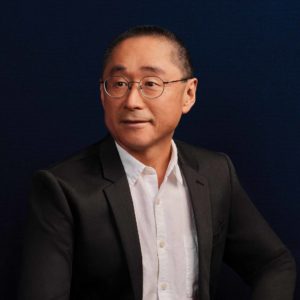
Dr. Junichiro Kono
Karl F. Hasselmann Chair in Engineering and Professor of Electrical and Computer Engineering, Rice University
Dr. Junichiro Kono is the Karl F. Hasselmann Chair in Engineering and Professor of Electrical and Computer Engineering in the George R. Brown School of Engineering and Computing at Rice University. He also serves as Director of the Smalley–Curl Institute and is associated with the Rice Quantum Initiative, the Rice Center for Quantum Materials, and the Rice Center for Cavity Quantum Electrodynamics. Dr. Kono received his Ph.D. in physics from the State University of New York at Buffalo.
Dr. Kono’s research focuses on quantum optics in condensed matter. He is known for demonstrations of ultrastrong light–matter interactions in condensed matter in cavities, which have advanced new directions in quantum science and materials research.
Dr. Kono has authored 328 publications and is a Fellow of the American Physical Society (2009), Optica (2015), SPIE (2019), the Institute of Physics (2021), and the Japan Society of Applied Physics (2023). He has also been honored with the Institute of International Education’s Heiskell Award for Innovation.
Through his leadership at Rice University, Dr. Kono continues to advance research in quantum optics and condensed matter, connecting fundamental discoveries to emerging applications in quantum science and technology.
